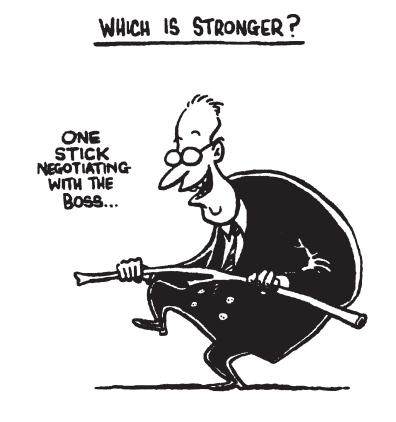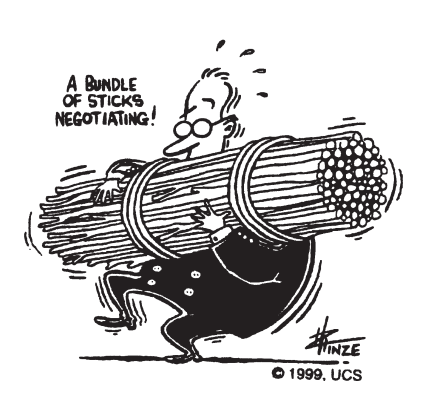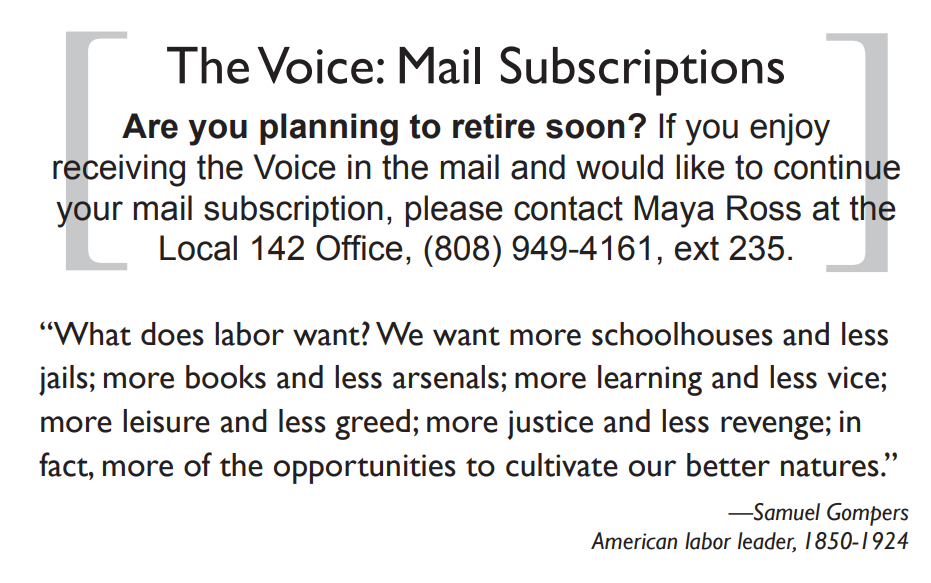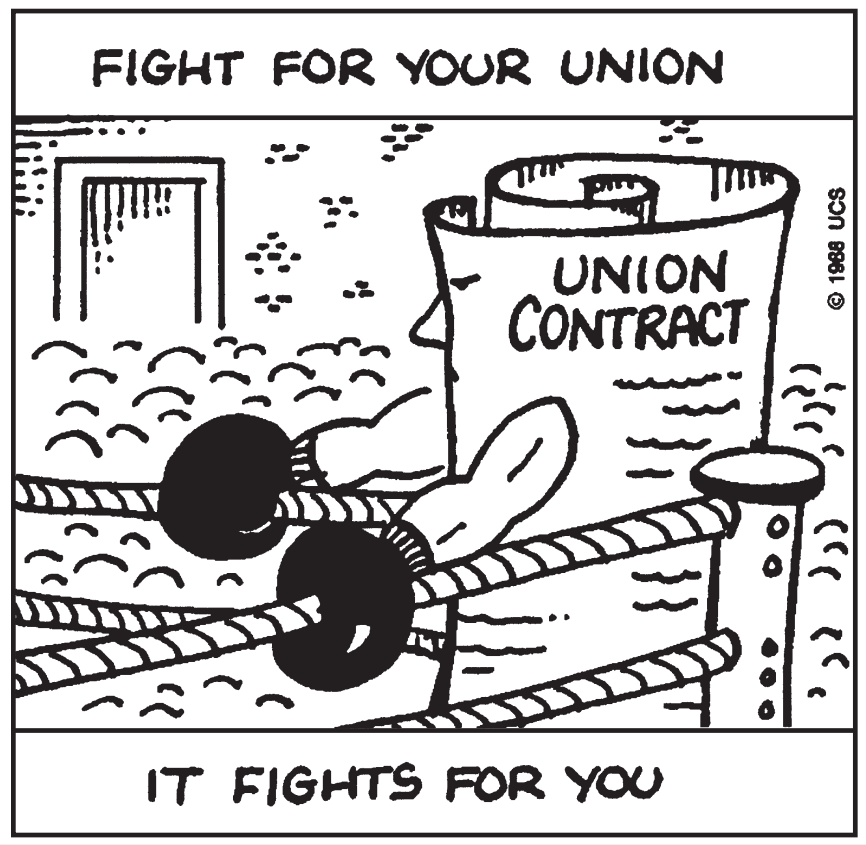Your union contract is a written agreement with your employer. It defines your wages, benefits, conditions of employment, and rights on the job. It is enforceable through a grievance procedure and ultimately in a court of law.
Most union contracts are renegotiated every three years, although some contracts run for only one year and others run for as long as six years. How long the contract runs is up to you and your negotiating committee. The ILWU is a democratic union and members are involved in every step of the negotiation process.
Before the old contract expires, the union members at your company (which we call a Unit in the ILWU) will be asked for their input and ideas on what to change in the contract. This is usually done at a membership meeting, called by the officers of your Unit. This is one good reason why you should attend union meetings— it’s your chance to improve your union contract.
Your unit will also select a committee to represent them in negotiations with management. This committee is usually composed of your elected unit officers, but many units will expand the committee to make sure different parts of your unit are represented. A hotel unit, for example, might select a committee with members from different departments like housekeeping, food and beverage, maintenance, and front desk.
The Local or Division office will also assign a full-time business agent or officer to work with your negotiating committee as your spokesperson. During negotiations, unit members may be asked to support their committee by wearing union buttons, attending rallies, and mobilizing in other activities.
When your committee thinks a fair settlement with management has been reached, they must get your vote of approval before the new contract can be finalized. This happens at a membership meeting where your committee will report on the settlement and where your unit members can vote to accept or reject the settlement. This is another part of ILWU democracy which requires membership approval for all contract settlements.
In rare cases, management may refuse to agree to a fair settlement and your committee may ask you to authorize a strike. Again, ILWU democracy requires membership approval for a strike.
Your union contract is a very important document. You should read the contract and be familiar with its terms. You should challenge management whenever they violate the contract. You can get a copy from your unit officers.




What to do if you need help
If you are given an oral or written warning or are disciplined by management, you should contact your union representative immediately. You have a right to ask for a union representative, if you are called into a meeting with management and you believe the meeting may result in disciplinary action.
The company may have House Rules, Standards of Conduct, Dress Codes and work policies that are separate from the union contract. These are the company’s rules, however, the union may get involved if you are disciplined as a result of any of these rules or if these rules are unfairly applied, are unreasonable, or unrelated to the business objectives of the company.
The company may not discipline or discharge any employee, except for just and proper cause. Just and proper cause involves the following principles:
1. The company must give the employee forewarning or foreknowledge of the possible or probable disciplinary action as the result of the employee’s conduct.
2. The company’s rule must be reasonably related to the orderly, efficient and safe operation of the employer’s business, and the performance that the company might properly expect of the employee.
3. Before administering discipline to an employee, the company must make an effort to discover whether the employee did in fact violate or disobey a rule or order of management.
4. The company’s investigation must be conducted fairly and objectively.
5. When the company conducts its investigation it must obtain substantial evidence or proof that the employee was guilty as charged.
6. The company must apply its rules, orders and penalties evenhandedly and without discrimination to all employees.
7. In determining the degree of discipline the company must show that the penalty is reasonably related to the seriousness of the employee’s proven offense and shall consider the employee’s record of service and length of employment with the company.
The union will work on your behalf to investigate if the company acted properly in taking disciplinary action against you. If you are disciplined, there is a time limit within which to contact the union and have the union file a grievance. Because of this time limit, do not delay. Contact the union representative as soon as you can.
